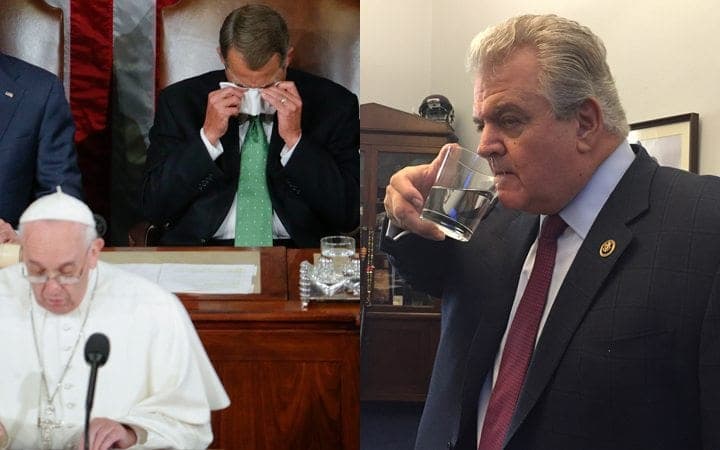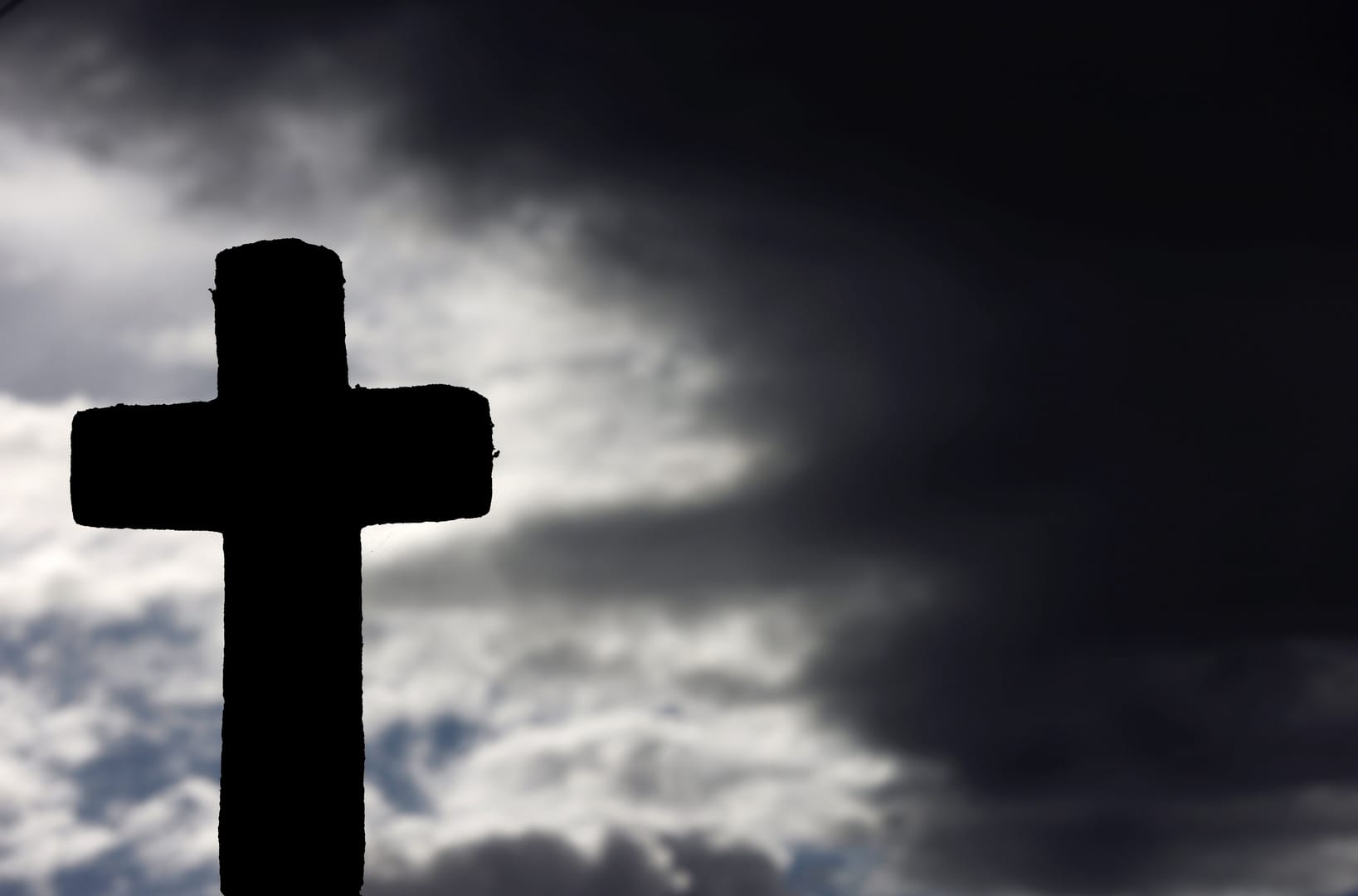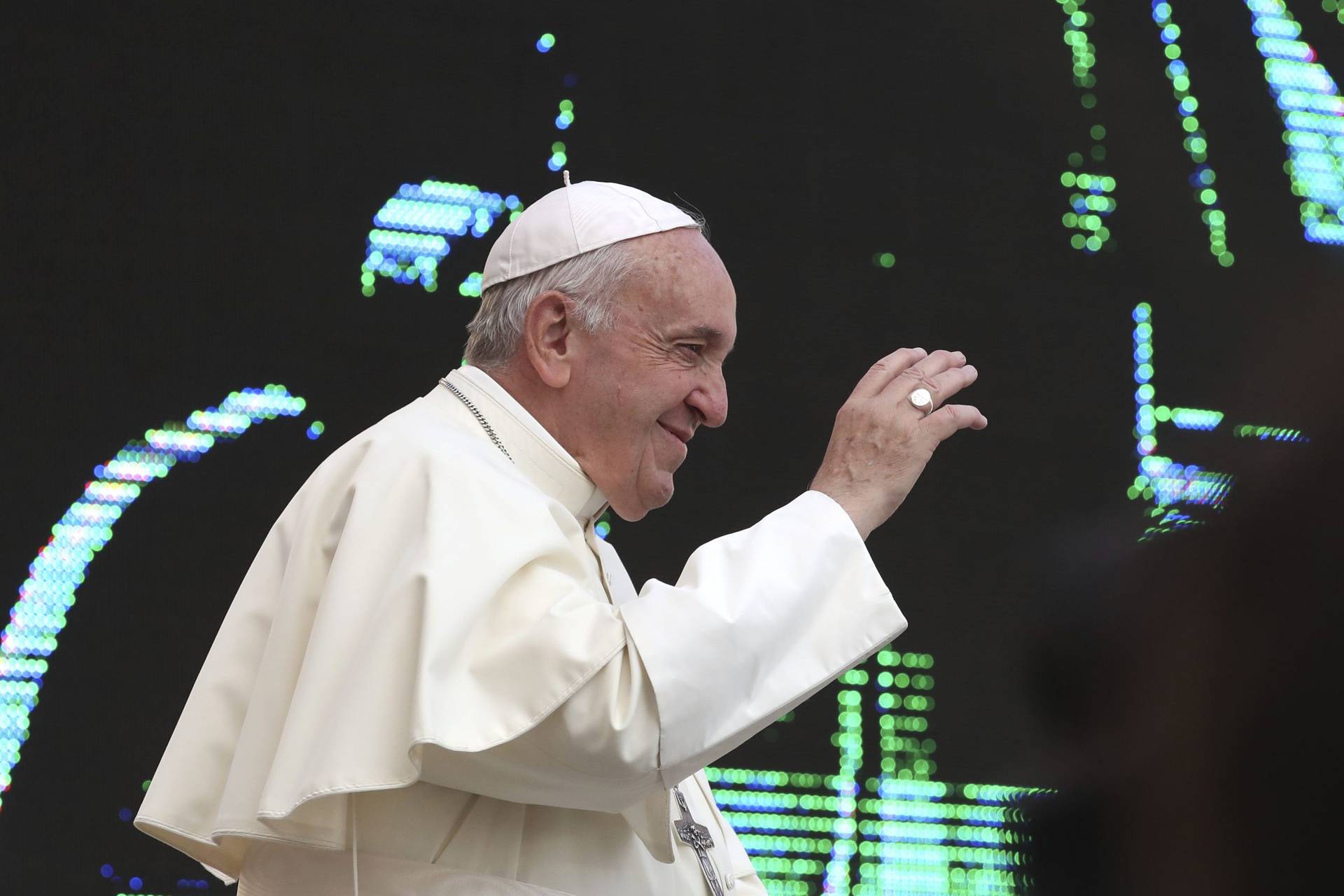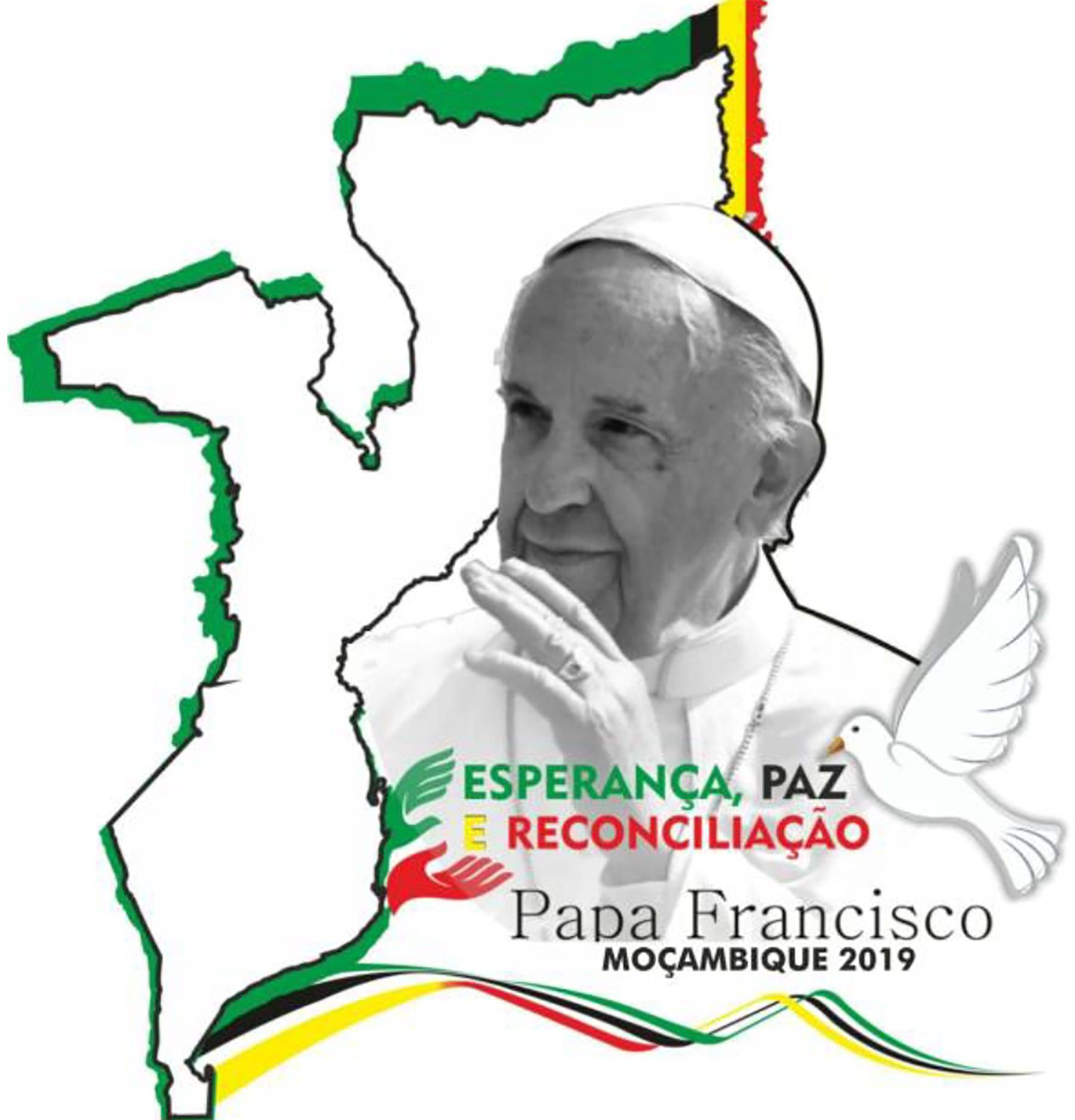While everyone is still thinking and talking about Pope Francis, I’m thinking and talking about two seemingly very different people who were affected by the Holy Father in very similar ways.
They’re both congressmen, but one’s a Democrat and the other’s a Republican.
I’m thinking and talking about Rep. Robert Brady and Rep. John Boehner.
They both have their political differences, but they’re both Catholic to the core.
***
I was posting on Facebook and Twitter after Pope Francis’ speech to Congress on Thursday, and I was immediately intrigued by an item in my news feeds. It was a report about Brady, representative from Pennsylvania’s first congressional district in Philadelphia.
Brady evidently took the glass of water that Pope Francis drank from during his speech. The glass was half-full, so Brady and his wife both drank some of the water themselves. They were joined by Democratic Sen. Bob Casey, along with his wife his and mother, as well as Rep. Joseph Crowley. While they did not drink the water, they used it to bless themselves. Afterwards, Brady reserved the remaining water — which he will purportedly use to bless his grandchildren — and sent the glass to be authenticated.
Weird.
Disgusting.
Those were some of the comments I read.
I heard other concerns voiced as well.
In a lighthearted piece for NPR, Domenico Montanaro speculated that Brady might have even violated some commandments, specifically the 8th and the 10th commandments, which respectively address “stealing” and “covetousness.”
I have to respectfully voice my disagreement with this analysis, and I certainly didn’t find what Brady did weird or disgusting.
Far from it — it was very Catholic.
***
To be sure, the water that Pope Francis touched is not “Holy Water” in a strict sense. Holy Water is a “sacramental” and it is made holy by the active and intentional blessing of a priest. So, the water in the Pope’s glass is not exactly like the water in a church that parishioners use to bless themselves when they walk in the door.
But there is a long tradition in Catholicism of respecting and venerating things that have come into contact with holy people. There are secondary relics — things that were possessed by a saint during her or his lifetime, like a piece of clothing or a writing instrument. There are also tertiary relics — things that have touched a primary relic of a saint. So rosary beads that have been touched to a primary relic of a saint — like a thighbone — become sanctified themselves.
Of course, a saint is made a “saint” only after death and the process of canonization.
But we can forgive Brady for being a little hasty, since there is also a long tradition of Catholics prizing things that have come into contact with still-living holy men and women.
For example, University of Notre Dame professor Peter Jeffery, in a classic article on the Catholic foot washing ceremony, recounts a story of nuns washing the feet of Abba Daniel of Skete and then using the water that had washed his feet to bless themselves. More recently, some of St. John Paul II’s blood was preserved after the assassination attempt against him, and stories have circulated for many years surrounding the efforts of the Missionaries of Charity to retain items associated with Mother Teresa while she was still alive.
In saving the water touched by Pope Francis, and drinking it himself, Brady also acknowledged water as a particularly powerful medium for transferring sanctity.
Of course, water is associated with baptism in the Christian tradition, and many other religions understand water not only as purifying but also as a privileged conduit of divine power and energy. So, in other parts of the world, Brady’s act would be immediately comprehensible — and praiseworthy.
The only reason that Brady’s actions were characterized as “weird,” “disgusting,” “stealing,” or “covetous,” is because many of us have not been raised in an environment in which those kinds of religious sensibilities are still meaningful.
But many Catholics still have those sensibilities and take holiness seriously.
I know I still do, and if I were with Brady, I would have done exactly the same thing.
***
At first glance, Speaker of the House John Boehner, a Republican, would seem to share little with Brady, a Democrat, other than being in Congress.
But Boehner is Catholic, too, and he is not afraid to show it.
When Boehner cried in the presence of Pope Francis, he was almost uniformly mocked. Of course, Boehner is famous for crying at the drop of a hat—or the drop of a gavel. But when I heard Boehner lampooned for weeping while standing near the pope, I felt like saying, “Leave John Boehner alone!”— to echo a now famous plea made on behalf of Britney Spears when she was going through a rough patch in her life.
In a different time and place, perhaps, Boehner would be praised for experiencing the “gift of tears.”
In the Christian tradition, “the gift of tears” is most often associated with what is called “penthos” or mourning. Tears are a sign of compunction; they signify sorrow for ones sins. But tears can also be associated with consolation, with the experience God’s mercy. St. Ignatius of Loyola, for example, was often overcome by tears, which expressed his joy and gratitude over God’s presence in his life. It’s even said that Ignatius cried enough to affect his eyesight.
Whether a sign of compunction or consolation, Boehner’s tears in the presence of Pope Francis follow a very familiar Catholic paradigm–as does his announcement the following day that he would resign his speakership at the end of October.
Tears, conversion, renunciation of power: they all follow a very religious progression indeed.
For example, Carloman, Duke of the Franks and elder brother of Pepin the Short, was known for his political ruthlessness, until he suddenly decided to cast aside his authority and take the tonsure of a monk.
Of course, to many, viewing Boehner’s tears and resignation through a religious lens might seem rather silly. Some say he’s just a sentimental guy who likes fine ties and even finer wines. In any case, they would point out, there are strong political forces that pushed him out of office.
Then again, they said similar things about Carloman, and historians are still debating the matter.
But it is true that Boehner is not going into a monastery.
Nonetheless, the Catholic in me believes that it wasn’t mere coincidence that Boehner cried with the Pope, and then woke up the next day and decided to do something radically different with his life.
Maybe before he leaves, Boehner could walk across the aisle more easily and extend a hand to Brady. They could even both have a quick sip of Pope Francis’ water.













